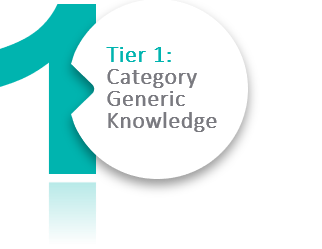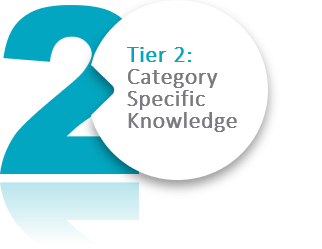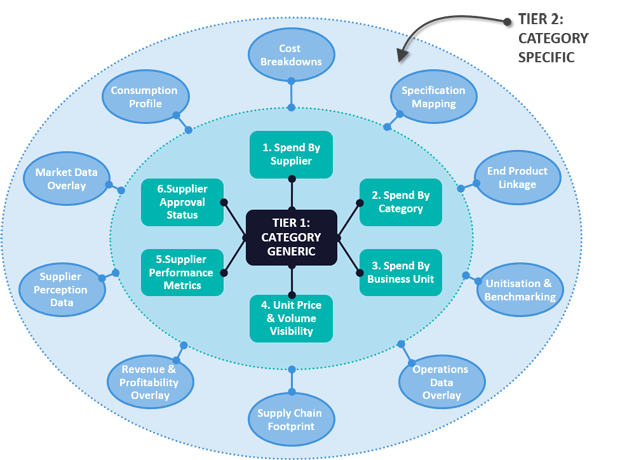
Insight
How Do Leading Organisations Build a ‘Procurement Ready’ Knowledge Base?
By Mark Webb |
You will achieve 30% faster results if you have a knowledge base that is ‘Procurement Ready’
Spreadsheet Detectives or Category Managers?
Do you find that having invested millions on your business ERP system (e.g. SAP, Oracle etc) that it’s outputs can really only be used to generate the P&L analysis for the business?
Do you find your ERP data is not complete, dependable or detailed source of data and a poor foundation for your Category Management process?
Do your Category Managers spend excessive time on seek and collection activities such as:
- Working with IT or Finance how to extract data in a usable format?
- Compiling data from various sources, cleansing information and manipulating it to generate insights and visual outputs?
- Working with the technical stakeholders to gain access to their functional and personally held databases?
- Honing pivot table skills to find information hidden in data?
If your answers to any of these questions is yes, then you are likely to be suffering from a lack of ‘Procurement Ready’ knowledge and your Category Managers are forced to behave more like ‘Spreadsheet Detectives’.
Unfortunately, this situation is the norm rather than exception in most organisations. It results in category managers taking inconsistent approaches to developing the baseline spend and cost information they need to identify and quantify value improvement opportunities. It can be a very time-consuming activity and reduces the time available for other category management activities such as stakeholder engagement, business requirements identification and undertaking supply market research. The net effect is that category strategies take longer to build, are less comprehensive. They also default to using the basic value levers of competitive leverage and volume consolidation, rather than a full range including specification optimisation, cost and remuneration model analysis etc.
To address this shortfall, we have developed a standard model based on our experience of developing category strategies with leading organisations. The model defines the ‘Procurement Ready’ knowledge that category managers need (see page 2). We have grouped the knowledge areas into two tiers:

Tier 1 is the foundation level data that is required for all categories. These are the basics.

Tier 2 is more specialised data that will vary depending on the profile of the category and potential opportunities. This provides truly leading edge insight and category strategies that fully connect with the business.
The ‘Procurement Ready’ Knowledge Base Model

Tier 1 – Category Generic (minimum requirements)
For all categories being reviewed, category managers require, as a minimum, the following data and information to be part of their ‘Procurement Ready’ knowledge base:
- Spend by Supplier: e.g. spend data with currency of transaction for normalised supplier entities (eg no Dell & Dell Inc. spelling variation etc.) as well as mapping of supplier ownership hierarchies.
- Spend by Category: e.g. properly segmented, based on sound logic, minimal miscoding and high level of consistency across business units and geographies. Forecast spend using budget data should also be part of this knowledge base analysis.
- Spend by Business Unit: e.g. ability to analyse spend at the business unit or geographical or site level, with clarity on key cost centres and budget holders.
- Unit Price and Volume Visibility: e.g. complete visibility of price and currency paid per unit of measure with quantities purchased, both current and historical data with price history trends.
- Supplier Performance Metrics: e.g. quantitative and qualitative performance information for suppliers currently providing goods and services within a category portfolio.
- Supplier Approval Status: e.g. clarity on the value and percentage split of category/sub-category spend that is channelled to suppliers with a particular approval status e.g. approved.
Summary & Recommendations for Action
With a higher quality “Procurement Ready” knowledge base, building a strong category strategy is easier and quicker. This in turn builds greater momentum for change. A ‘Procurement Ready’ knowledge base is one of the differentiators between Category Management Leaders and Followers and contributes to the 40% extra savings that Leaders enjoy versus Followers.
In order to implement a “Procurement Ready” knowledge base we recommend that a consistent model is developed and trained so that a language is established across the procurement team.
A further development we have seen, at leading organisations, is to create a specialist function within the procurement team that specialises in producing this information – releasing category managers to focus on developing better category strategies, faster.
The most successful way we have seen “Procurement Ready” knowledge bases be created and developed is where Procurement prioritises the need for this capability and establishes a plan to make it happen.
Read Part 2 Building a ‘Procurement Ready’ Knowledge Base
Category Management
Making category management a core business competence of modern procurement is a top priority.
Multi-site companies in the private sector and large government departments in the public sector require “one way of working” capable of unlocking value in a fast and flexible manner.
Implementing a ‘Procurement Ready’ strategy is key building block to deliver great value faster. Future Purchasing is an acknowledged expert in the design, adoption and practical application of this key business process.

About Mark Webb
Managing Director
22 years procurement experience in line management
and consulting roles.
Previous employment: Price Waterhouse, Mobil Oil and QP Group
Education: BSc in Management Science and MSc in Business by Research, Aston University
CIPS: member
Further Reading

Insight
Building a ‘Procurement Ready’ Knowledge Base – Part 2
11/12/2020
Read More

Case study
At AstraZeneca the foundations of category management are built on stakeholder engagement
07/11/2023
Read More

Case study
Mark Smith interview – A lean category management model is at the heart of procurement at bp
08/02/2024
Read More